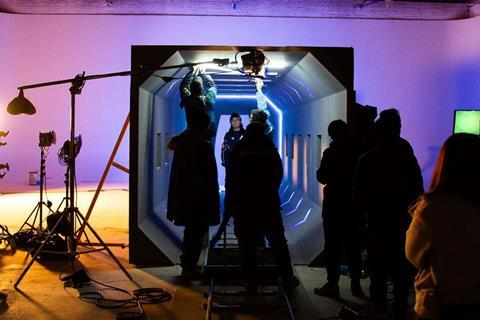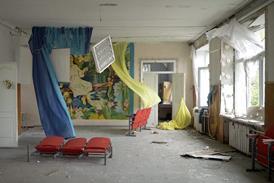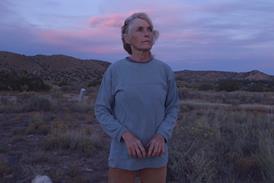
More than half the people working in the UK film and TV industries have experienced bullying, harassment or discrimination in the past year, according to a new study by the Film and TV Charity.
Despite a wave of measures being introduced to help enforce safe working environments, the report found that 57% of respondents had experienced bullying, harassment or discrimination in the past year.
The study, titled Looking Glass ’21, stated: “Racial harassment and discrimination are widespread.”
Four in 10 (39%) of Black, Asian and minority ethnic respondents had experienced racial harassment or discrimination in the past year and women reported being bullied more than men, with 43% of female respondents having experienced bullying in the past year, compared to 34% of men.
The latest findings were revealed in Looking Glass ’21, a follow-up to the Film and TV Charity’s research in 2019, which revealed that 87% of film and TV workers in the UK had experienced a mental health problem – far higher than the 65% UK national average.
Responses from more than 2,000 film and TV workers, captured during the ongoing pandemic in summer 2021, revealed that mental health and wellbeing have remained stable despite the challenges of the pandemic.
However, major issues were highlighted around working hours, Covid safety protocals, and talent retention.
The UK has experienced a boom in production since lockdown restrictions lifted in autumn 2020, with a record £5.64bn spent on film and high-end TV production, according to recent BFI statistics. But with that success have come longer working hours, with 78% saying that work intensity has negatively affected their mental health, compared with 63% in the 2019 survey.
Some 39% say they are working more than 50 hours a week compared with 29% in 2019, while one in six people now work more than 60 hours a weeks, compared to the UK average of 1 in 50 working those hours.
Covid safety measures impact
Returning to work during a pandemic also saw the introduction of Covid safety protocols, which include regular testing, mask-wearing and social distancing. But nearly half (46%) of workers said this negatively affected their mental health while four in 10 (42%) said the protocols negatively affected their ability to do their job.
Overall, 65% of respondents said they had considered leaving the industry in the past year, which rose to 74% of disabled respondents.
In addition, just 10% of respondents claimed that the industry is a “mentally healthy place to work”.
“Despite stability and remarkable resilience in some areas, there is still much more that we must do,” said Alex Pumfrey, CEO at The Film and TV Charity.
“The urgency is especially acute when we consider the strain being placed on the mental health of people in the industry from under-represented communities, including our disabled workforce and Black, Asian and minority ethnic workforce. In particular, the mental health impacts of individual experiences of racial harassment and discrimination, has been brought to the fore.”
The full Looking Glass ’21 report can be read here.
The Film and TV Charity has committed to re-running the Looking Glass research this year and every two years thereafter, tracking the mental health of workers and reporting areas of concern that need addressing.
In October, the charity launched a year-long campaign – titled Let’s Reset – to tackle ongoing mental health challenges facing the industry, supported by major studios including Warner Bros and Disney. It is also preparing to launch the Whole Picture Toolkit, an online resource that will use real-life examples of best practices and ideas from across the industry to help productions be more mentally healthy places to work.
Screen published a feature this week that examines bullying and harassment in the UK film and TV industry, nearly a year on from when allegations of sexual misconduct were made against actor and filmmaker Noel Clarke (who denies the claims).

























No comments yet